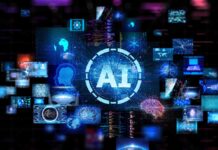The sweeping forces of technology that drive globalization at breakneck speed is something that was beyond the comprehension of humans 50 years ago
Suresh Chandra Sarangi

The inevitable and irrefutable future has already knocked at the door of planet Earth. In today’s world, there are many prophets, fortune tellers and futurologists, but the sweeping forces of technology that drive globalization at breakneck speed is something that was beyond the comprehension of humans, just fifty years ago. Technology has changed our perception of the future and even Alvin Toffler, who wrote ‘The Future Shock’ approximately 50 years back, would not have comprehended in his magnum opus.
Demystifying Future
Demystifying the future is a hard task, but the trends envision a different world. Of course, some, like Kelvin Kelly, have made a futuristic assumption and decoded the technological forces that are influencing each second of our future. Sometimes, it is exhilarating and sometimes sad, because of the newfound inequality it has created in as much as Varoufakis calls it Techno- feudalism. People have created a fictional world that entertains us in films and reading.
But today what is happening is more eye-catching, revolutionary, massive and above all more transformational, not just in science but the way one visualizes family, society and culture. The speed is terrifying and the impact is powerful.
Toffler had predicted the overwhelming change. So, it was a question of how to adapt and not to adapt or if not adapted, what are the consequences. So what has been happening in the past 50 years is a roaring sense of change, a powerful current that has the power to overturn institutions, a concomitant shift in human values and a far-reaching impact on our culture. One has to break with the past, but one may forced to be uprooted from the roots and face devastating consequences, because of the change.
Adaptability Problem
Today, the change is being engineered by technology, using its infinitesimal power, almost non-stop and the change is also a problem of adaptability. By assimilating within no time and by the time the same is a bit settled, another change happens and life is a crucible of shifting sands. Toffler would say it was a massive adaptation of Al’s breakdown.
This was such that the people were experiencing change so massive that the shattering stress and disorientations made the homo-sapiens panicky. This appalling wave of change was visible with humans gradually adapting to the process of change but with a big sacrifice.
Moreover, this uneven pace of change was not only leading to some dislocation in daily life. Whatever may be the thing, technology-induced change brings one thing to the center of discussion, the importance of impermanence. What is more startling is the problem, when we do not celebrate change, we do not acknowledge change and finally when we do not adapt to failing, we receive a shock of the future, which is more perplexing.
Understanding the technological forces, that will shape our future, is to prepare ourselves mentally for welcoming the change. If we imagine 2050, we can know what virtual reality is, just 25 years from today, we may feel that the robotic age is here to stay and the use of Artificial Intelligence, makes change more impermanent and unbelievably powerful, with new rules that govern our life. Scientists have predicted that all humans and machines will be linked into a global matrix that would be a new avatar for the homo sapiens.
Mahabharata Analogy
This is inevitable and not be blocked or stopped. If one objects to it he will receive the future shock of life. Think of Apple computers, or smartphones, that make data move faster. In this context, a story comes to mind. The Yakshya asked questions to all five Pandav brothers, who were going to land in heaven and suffered when they could not answer. When Dharmaraj Judhistir was asked about what is the fastest thing in the world, Judhistir said ‘Mana’ means the mind, and Yakshya were happy and all brothers got a leash of new life. But the computer today is faster than Man, rather the creation has captured the imagination of the mind with its speed and accuracy.
The Internet, what Bill Gates called Business at the speed of thought, is responsible for the transformation. Let us appreciate that everything is mutable, everything changes and the change is swift and massive. At the root of all change is technology, an immutable accelerant. See drones, from warfare to Agriculture, from self-defense to rain seeding, it is a current craze.
Therefore, it can be said that at the center of all significant change is Technology, which would write a new history of homo-sapiens. The world is in constant flux, more so due to the change triggered by technology. This seamless change is powerful. The latest buzzword is disruption, almost an outcome of our acceptance of technological changes.
‘Becoming’ is a beautiful book, written by Michelle Obama, the First Lady of United States of America. Technology never seems to have halted, it is unfolding and becoming catchier word as change happens every second somewhere in the world touching our lives. It is the one thing that is going to change everything. So it is in the process of becoming.
Artificial Intelligence
Artificial Intelligence would be cheap, powerful and useful intelligence and when unmasked it may be the most benevolent servant or more autocratic master. Cognifying all the possibilities would be infinitesimal, even creating a robot with human spirit like love, anger, hate and laughter. The film Bicentennial Man speaks of these human emotions and love exhibited by robots who create families, love their wives and make appropriate decisions. It is a wonderful story of human cognizance.
Let us think of the digital economy, fintechs, digital entertainment and the humans riding over the wave of technology. Things cannot be outlined because of the speed of processing. Let us take the example of culture, when human beings observed culture as something that only revolved around the spoken word, the written word, screening and printing. Today, there are more than 5 billion digital screens.
The Internet has democratized the world, making the world a small stage. Social media, despite the spread of post-truth, are making debate and democracy more intense and influential in making informed public opinion a fact of life.
The universal access to all netizens has made democracy more penetrating. The greatest fact for rejoicing is that each one of the netizens can write software about anything and everything that concerns us. Moreover, sharing and collective endeavor in preparing the software, speaks of cooperation, collaboration and collectivism. In medical science the use of technology is phenomenal and its application is spreading like wildfire saving human lives. The control of the COVID pandemic through the vaccine is a victory for mankind.
Dystopian Downside
From climate change to biotechnology, from medicine to Artificial Intelligence, technology is deciding the fate of everything and the contours of human life. In today’s world, prophecy may be a lost art of course, one cannot be ignorant of the catastrophic danger of technology and now Artificial intelligence. This may arise from nuclear reactors, biotech, cybercrime, cyber terrorism and ultimately climate change causing havoc and devastations of uncontrolled technology.
Even we cannot be ignorant and negligent about an existential crisis, nicknamed the sixth extinction. Even in the next decade or two, technology, which has already changed the working pattern, work from home, would again welcome new vistas in work culture. Technology is going to be a new game changer, in bringing prosperity to the world.
The dystopian downsides are to be monitored to bring good effects of technology. If technology could change the misfortunes of the teeming millions in an unequal world then it is welcome. If technology could improve the lives of the bottom billions, by helping in the redistribution of wealth or creating avenues for the creation of new wealth for them. It would be wonderful to transform the world.
In the future, if any historian would like to write the history of mankind, it would be a fascinating story for him to bring out the convergence of technology helping to find a human face and that would be fascinating indeed.
(The writer is a retired banker and lives in Bhubaneswar)






















